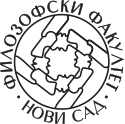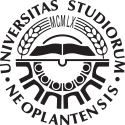- Falus Iván szerk.: Didaktika. Budapest, Nemzeti Tankönyvkiadó, 1998. (Original title)
- Pethőné Nagy Csilla: Módszertani kézikönyv. Befogadásközpontú és kompetenciafejlesztő irodalomtanítás a gimnáziumok és szakközépiskolák 9-12. évfolyamában.Budapest, Korona Kiadó, 2007. (Original title)
- Bárczi Zsófia szerk.: Szerző ‒ szöveg ‒ olvasat. Irodalmi szövegek elemzése és tanítása. Pozsony, Madách-Posonium, 2012. (Original title)
- Cserhalmi Zsuzsa: Amit az irodalomtanításról tudni kellene... Budapest, Korona Kiadó, 2001. (Original title)
- Katona András et al szerk.: A tanári mesterség gyakorlata. Tanárképzés és tudomány. Budapest, Nemzeti Tankönyvkiadó, ELTE Tanárképző Főiskolai Kar, 2003. (Original title)
- Károly Krisztina‒Perjés István: Jó gyakorlatok a tanárképzés tudós műhelyeiből. Budapest, ELTE Eötvös Kiadó, 2015. (Original title)
- Karlovitz János‒Karlovitz János Tibor: Korszerű oktatástechnológia. Budapest, ELTE Eötvös Kiadó, 2003. (Original title)
- Hózsa Éva‒Horváth Futó Hargita: Tanítástaktika : magyartanárok kézikönyve. Újvidék, BTK, 2014. (Original title)
- Hózsa Éva‒Horváth Futó Hargita: A tanórába foglalt Arany János : óratervgyűjtemény a magyartanárok számára. Újvidék, BTK, 2017. (Original title)
- Hózsa Éva‒Horváth Futó Hargita: Órasoroló : tanári kézikönyv. Újvidék, BTK, 2017. (Original title)
- Hózsa Éva: Mesterségem: irodalomtanár. Szabadka: Életjel, 2013. (Original title)
- Fenyő D. György szerk.: Hézagpótlás ‒ A kortárs magyar irodalom tanítása. Budapest: Aulainfo, 2010. (Original title)
- Fűzfa Balázs: Irodalomtanítás – de meddig? Egy lehetséges válasz: irodalom_12_11_10_9. Elektronikus Könyv és Nevelés, 2009/2. http://epa.oszk.hu/01200/01245/00042/fb_0902.htm (Original title)
- Gordon Győri János: Kötelező, közös, kölcsönös olvasmány (Hagyomány és megújulás az iskolai olvasmányok kánonjában). Elektronikus Könyv és Nevelés, 2009/2. http://epa.oszk.hu/01200/01245/00042/ggyj_0902.htm (Original title)
|

